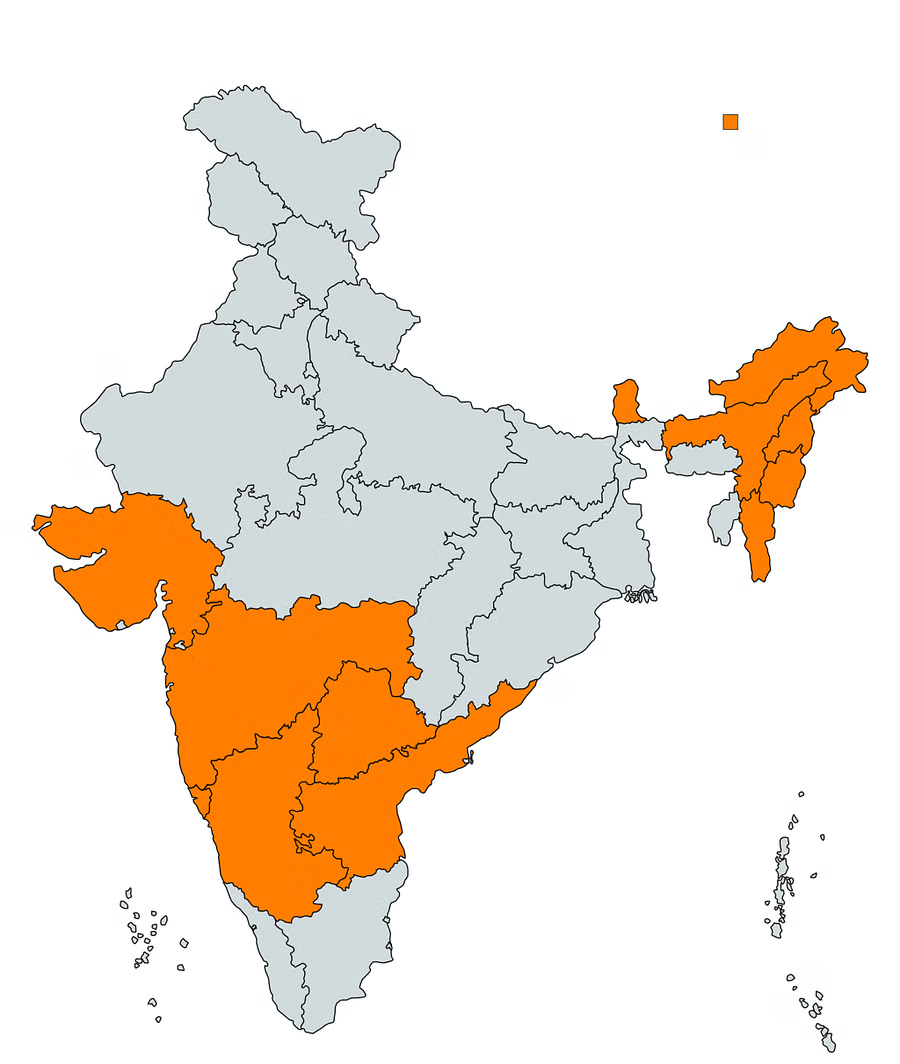Laxmikanth Summary: Special Provisions for Some States | Indian Polity for UPSC CSE PDF Download
Introduction
Introduction
Articles 371 to 371-J, embedded in Part XXI of the Constitution, harbor special provisions designed for twelve states: Maharashtra, Gujarat, Nagaland, Assam, Manipur, Andhra Pradesh, Telangana, Sikkim, Mizoram, Arunachal Pradesh, Goa, and Karnataka. The intent is to address the nuanced needs of these regions, whether pertaining to socio-economic development, tribal cultural preservation, internal security, or safeguarding local interests. The following elucidates the specific provisions for each state.

Provisions for Maharashtra and Gujarat
- Article 371 grants the President authority to assign specific responsibilities to the Governors of Maharashtra and Gujarat.
- Responsibilities include establishing development boards for distinct regions like Vidarbha, Marathwada, Saurashtra, and Kutch.
- The boards aim at equitable fund allocation, annual reporting mechanisms, and provisions for technical education and vocational training.
- Emphasis on the Governor's role in ensuring fair distribution of funds and facilitating employment opportunities in specified areas.
Provisions for Nagaland
- Article 371-A outlines unique provisions for Nagaland.
- Exempts certain Acts of Parliament unless overridden by the State Legislative Assembly.
- Grants the Governor special responsibility for law and order during internal disturbances.
- Establishment of a regional council for the Thensang district with specific operational provisions for a specified period.
- Governance of Thensang district by the Governor and discretionary powers in decision-making.
Provisions for Assam and Manipur
Assam (Article 371-B):
- Empowers the President to create a committee for Tribal Areas in Assam.
- The committee consists of members elected from the Tribal Areas and those specified by the President.
Manipur (Article 371-C):
- Grants the President authority to establish a committee for Manipur's Hill Areas.
- Directs the Governor to ensure proper committee functioning.
- Governor submits an annual report on Hill Areas administration.
Provisions for Andhra Pradesh or Telangana
Andhra Pradesh (Article 371-D):
- President empowered to ensure equitable opportunities in public employment and education.
- Authority to organize civil posts in local cadres and provide for direct recruitment.
- Specification of areas for preferential treatment in recruitment and admission to educational institutions.
Telangana (Article 371-E):
- Empowers Parliament to establish an Administrative Tribunal for dispute resolution in certain matters.
- The Tribunal operates outside the state High Court and can be abolished by the President if deemed unnecessary.
- Grants Parliament the power to establish a Central University in Andhra Pradesh.
Provisions for Sikkim
- Introduced by the 36th Constitutional Amendment Act, Article 371-F governs Sikkim.
- Mandates a Legislative Assembly of not less than 30 members.
- Allocates one seat to Sikkim in the Lok Sabha, forming one parliamentary constituency.
- Grants the Governor special responsibility for peace and social-economic advancement, subject to the President's directions.
Provisions for Mizoram
- Article 371-G specifies special provisions for Mizoram.
- Exempts certain Acts of Parliament unless decided otherwise by the State Legislative Assembly.
- The Mizoram Legislative Assembly consists of not less than 40 members.
Provisions for Arunachal Pradesh and Goa
Arunachal Pradesh (Article 371-H):
- Governor granted special responsibility for law and order.
- Governor's discretionary powers cease when directed by the President.
- Arunachal Pradesh Legislative Assembly consists of not less than 30 members.
Goa (Article 371-I):
- Specifies that the Goa Legislative Assembly consists of not less than 30 members.
Provisions for Karnataka
- Article 371-J, introduced by the 98th Constitutional Amendment Act of 2012, provides special provisions for the Hyderabad-Karnataka region.
- Emphasizes the establishment of a development board for the region.
- Highlights fund allocation, reservations in education and employment, and the creation of local cadres.
- Aims to accelerate development, reduce disparities, and promote inclusive growth in the region.
Conclusion
In summary, Articles 371 to 371-J intricately tailor constitutional provisions for Maharashtra, Gujarat, Nagaland, Assam, Manipur, Andhra Pradesh, Telangana, Sikkim, Mizoram, Arunachal Pradesh, Goa, and Karnataka. This constitutional mosaic addresses a spectrum of issues, from socio-economic development to cultural preservation and local governance. The emphasis on Governors' roles, specialized committees, and unique powers granted to the President ensures a nuanced approach. These provisions exemplify a commitment to equitable opportunities, regional autonomy, and inclusive growth. By recognizing and accommodating the distinctive needs of each state, the constitutional framework seeks to foster a balanced and harmonious development trajectory across these diverse regions of India.
|
145 videos|630 docs|203 tests
|
FAQs on Laxmikanth Summary: Special Provisions for Some States - Indian Polity for UPSC CSE
| 1. What are the special provisions for Maharashtra and Gujarat? |  |
| 2. What are the special provisions for Nagaland? |  |
| 3. What are the special provisions for Assam and Manipur? |  |
| 4. What are the special provisions for Andhra Pradesh or Telangana? |  |
| 5. What are the special provisions for Sikkim? |  |

|
Explore Courses for UPSC exam
|

|


















